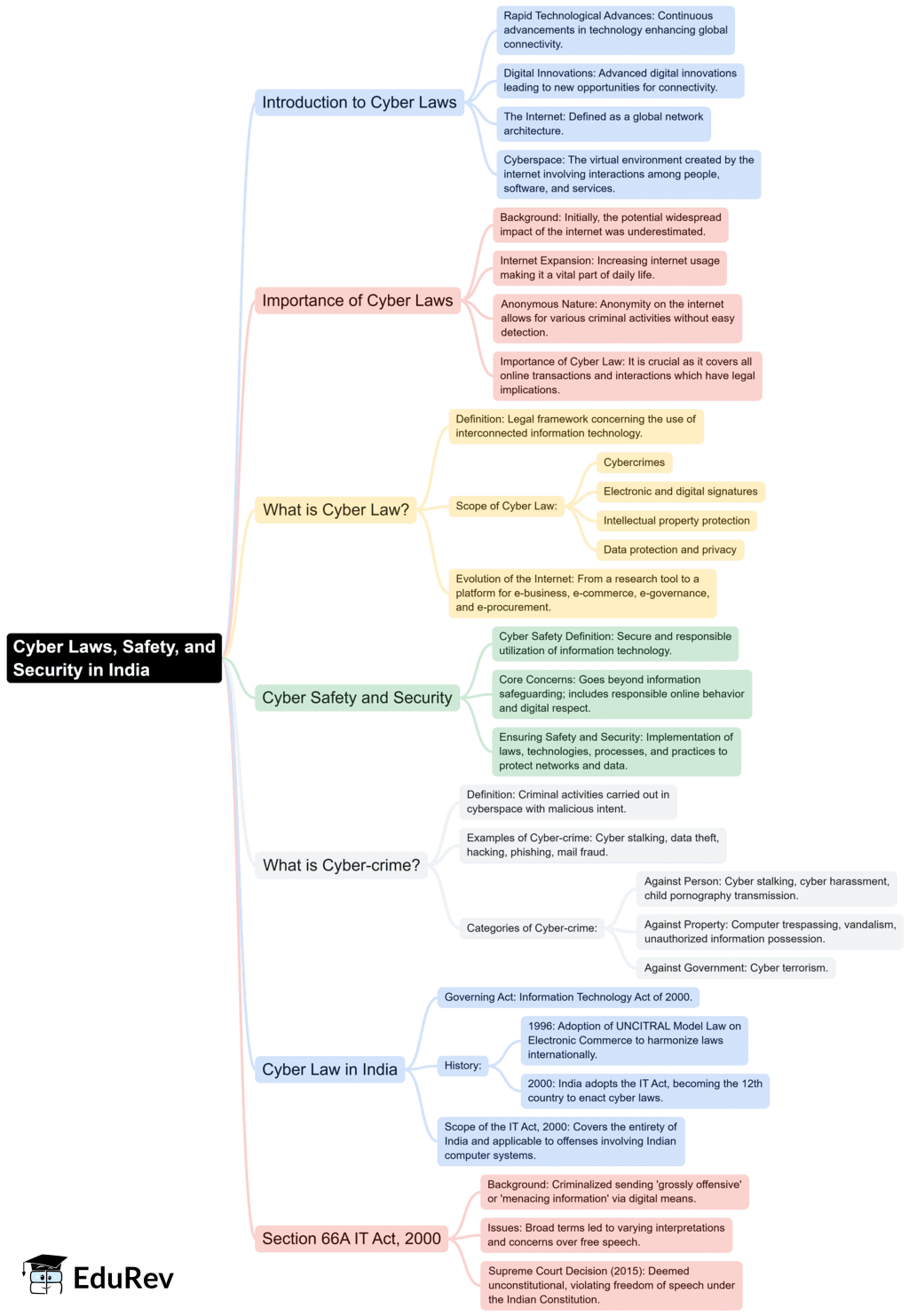Humanities/Arts Exam > Humanities/Arts Notes > Legal Studies for Class 11 > Mind Map: Cyber Laws, Safety and Security in India
Mind Map: Cyber Laws, Safety and Security in India | Legal Studies for Class 11 - Humanities/Arts PDF Download

The document Mind Map: Cyber Laws, Safety and Security in India | Legal Studies for Class 11 - Humanities/Arts is a part of the Humanities/Arts Course Legal Studies for Class 11.
All you need of Humanities/Arts at this link: Humanities/Arts
|
69 videos|80 docs|25 tests
|
FAQs on Mind Map: Cyber Laws, Safety and Security in India - Legal Studies for Class 11 - Humanities/Arts
| 1. What are the key components of cyber laws in India? |  |
Ans. The key components of cyber laws in India include the Information Technology Act, 2000, which governs electronic commerce, cybercrime, and data protection. It establishes legal recognition for electronic documents and signatures, outlines penalties for cyber offenses, and provides a framework for regulating online activities. Additionally, provisions for privacy and data protection are critical aspects, especially with the emergence of data protection laws.
| 2. How does the Information Technology Act address cybercrime in India? |  |
Ans. The Information Technology Act, 2000 addresses cybercrime through specific sections that define various offenses such as hacking, identity theft, and cyber terrorism. It prescribes penalties for these crimes, including imprisonment and fines. The Act also empowers law enforcement agencies to investigate cyber offenses and provides mechanisms for the affected individuals to seek redress.
| 3. What measures can individuals take to ensure their online safety in India? |  |
Ans. Individuals can ensure their online safety by using strong, unique passwords, enabling two-factor authentication, being cautious about sharing personal information, and keeping software and antivirus programs updated. It is also essential to be aware of phishing scams and to verify the authenticity of websites before entering sensitive information. Regularly reviewing privacy settings on social media platforms can further enhance security.
| 4. What is the significance of data protection in the context of cyber laws in India? |  |
Ans. Data protection is significant in cyber laws as it aims to safeguard personal information from unauthorized access, misuse, and breaches. With the increasing amount of data being generated and shared online, robust data protection laws help in ensuring individuals' privacy rights and promote trust in digital transactions. The push for comprehensive data protection legislation reflects the need to align with global standards and protect citizens' rights.
| 5. How are online disputes resolved under Indian cyber laws? |  |
Ans. Online disputes in India can be resolved through various mechanisms provided under the Information Technology Act and other relevant laws. Alternative dispute resolution methods such as arbitration and mediation are encouraged. The Act also allows for filing complaints with cyber crime cells, and cases can be taken to civil courts for resolution. Additionally, certain online platforms may have their own dispute resolution policies that users can utilize.
Related Searches
















